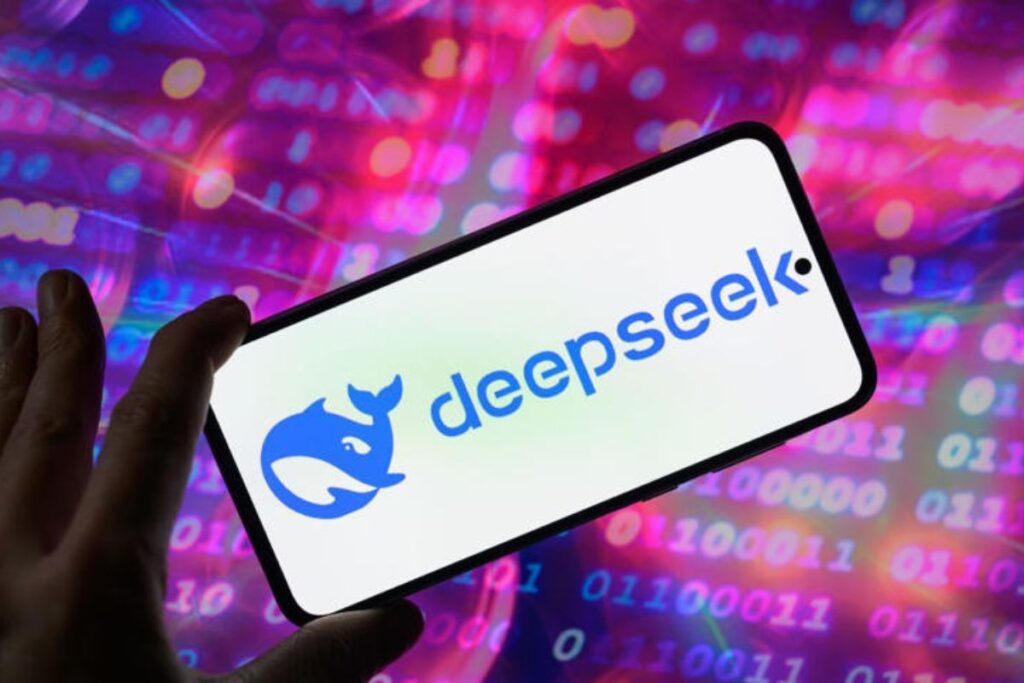In a significant development in the tech world, South Korea’s data protection authority has accused DeepSeek, a popular AI-driven chatbot, of leaking user data to ByteDance, the Chinese owner of TikTok.
This revelation has raised concerns about data privacy and security, not only in South Korea but also globally. As more countries scrutinize DeepSeek’s data management practices, the implications for privacy regulations, tech companies, and international relations are becoming clearer.
South Korea Suspends DeepSeek Downloads Amid Data Leak Allegations
The Personal Information Protection Commission (PIPC) of South Korea has temporarily suspended the ability to download the DeepSeek chatbot in the country. The suspension comes after the regulator confirmed
that DeepSeek had been transmitting user data to ByteDance, which owns the globally popular TikTok app. The data-sharing concerns primarily revolve around the potential violation of South Korea’s stringent data protection laws.
The PIPC’s investigation revealed that DeepSeek was sending data to ByteDance’s servers, though the exact details of the data or the extent of the leak have not yet been fully confirmed. South Korean law requires explicit user consent before any data can be shared with third parties, including foreign entities like ByteDance.
Read Also:- Elon Musk’s xAI Launches Grok-3: A New Contender to Rival OpenAI and DeepSeek
DeepSeek Responds to Allegations, Expresses Willingness to Cooperate
In the face of these allegations, DeepSeek has responded with a statement expressing its readiness to cooperate with South Korean authorities.
The chatbot’s representatives acknowledged shortcomings in handling local data protection laws but reaffirmed their commitment to resolving the matter. To further demonstrate goodwill, DeepSeek appointed a representative in South Korea to handle any inquiries from the PIPC.
This incident marks the first confirmed data leak involving DeepSeek, but the chatbot has faced similar accusations in other countries. With growing concerns about data privacy, DeepSeek’s relationship with ByteDance, a company already under scrutiny for its data handling practices, has raised alarms internationally.
Global Repercussions: Bans and Restrictions on DeepSeek
South Korea is not the only country raising concerns about DeepSeek’s data practices. In the United States, lawmakers have introduced a bill called the “No DeepSeek on Government Devices Act,” which seeks to prohibit the use of DeepSeek on government-issued devices.
Politicians argue that the technology, due to its association with ByteDance, poses a national security risk, as it could potentially be exploited for espionage or data harvesting.
In Italy, concerns about potential data leaks have led to restrictions on Chinese companies offering DeepSeek services. Similarly, Taiwan has banned government agencies and critical infrastructure providers from using DeepSeek, citing national security concerns.
The Bigger Picture: What This Means for Data Privacy and Tech Companies
The accusations against DeepSeek underscore the growing global tension around data privacy, especially when it comes to Chinese tech companies like ByteDance.

As governments around the world become more vigilant about data security, companies involved in data collection and AI technologies are facing increased scrutiny. The situation also highlights the complexity of international data privacy laws and the challenges of ensuring compliance across different regions.
For consumers, these incidents raise important questions about how their data is being used and whether it is being shared with third parties without their explicit consent. With the rise of AI-powered tools like DeepSeek, users are becoming more aware of the potential risks associated with sharing personal information online.
What’s Next for DeepSeek and Data Privacy?
As the investigation into DeepSeek continues, it’s clear that data privacy will remain a hot topic in tech discussions. While DeepSeek has expressed a willingness to cooperate with authorities,
the company faces mounting pressure to address concerns about its data-sharing practices. How it handles this situation could have lasting implications not only for its future in South Korea but also in other regions where it operates.
For tech companies globally, this situation serves as a reminder of the importance of adhering to local data protection laws and maintaining transparent data management practices. As governments implement stricter regulations on data privacy, businesses that fail to comply may face severe penalties and bans, further complicating the global tech landscape.
Read Also:- How Replit Grew Its Revenue by 10X with Anthropic’s AI-Powered Agent
Conclusion: What Do You Think?
The ongoing investigation into DeepSeek’s data practices raises crucial questions about the balance between technological innovation and user privacy. As more countries examine the chatbot’s data-sharing habits, will DeepSeek manage to regain trust, or will it face further restrictions worldwide?
We’d love to hear your thoughts! Do you believe DeepSeek’s data-sharing practices are a significant concern, or is this simply a misunderstanding? Share your opinion in the comments below.

